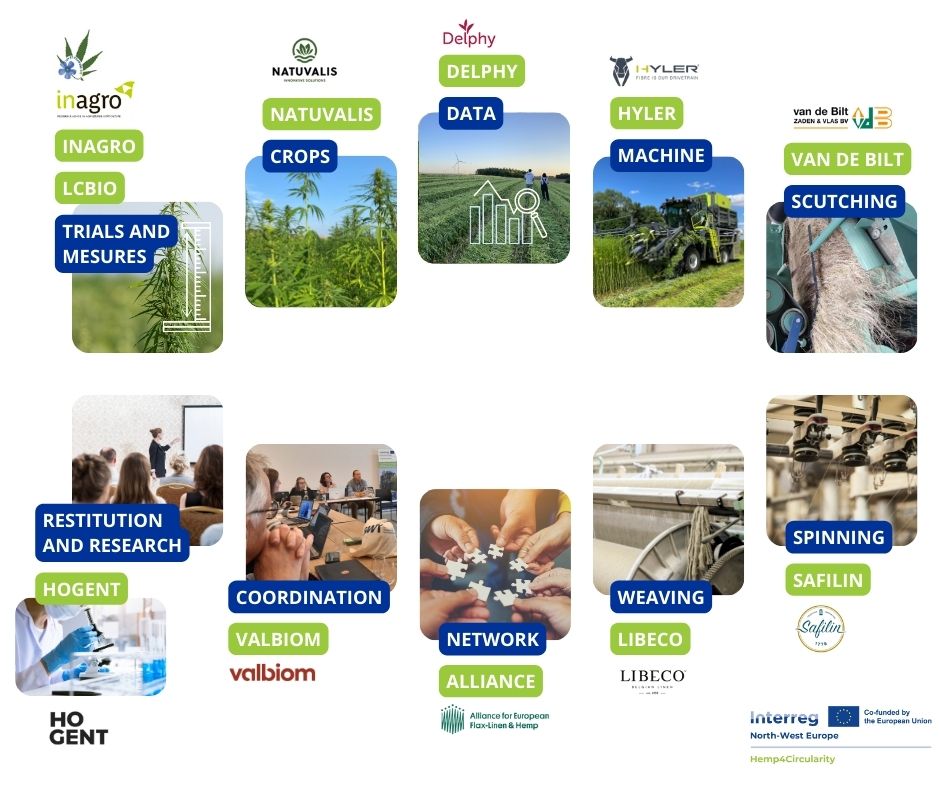On 27 May, the Hemp4Circularity project brought its partners together in Paris for its bi-annual meeting. The event, hosted this time by the Flax and Hemp Alliance, highlighted the significant progress made towards establishing a circular value chain for hemp by 2027, based on the flax processing industry in North-West Europe.
Discussions focused on the harmonious integration of all players in the value chain, from local agriculture and primary processing similar to flax, to mechanical fibre recycling. The aim is also to raise awareness of hemp textiles among designers and consumers.
Developing hemp textiles, from field to consumer
Participants were involved in various themed workshops, with detailed presentations on progress made in each key area of the project.
Growing long-fibre hemp
Led by Inagro, the first workshop focused on growing long-fibre hemp. Inagro shared the results of the 2024 season, highlighting the importance of plant density and moisture management in optimising fibre yield. International collaborations were discussed to standardise measurement methods and improve data quality.
Processing long-fibre hemp
The second workshop looked at the challenges encountered during processing trials, in particular the technical difficulties associated with spinning and bleaching. Innovative solutions were explored to improve the quality of processed hemp fibres. Emphasis was also placed on the need to consider textile hemp as a new product, with its own characteristics, which can be either a strength or a weakness depending on the desired outcome.
Training the players in the chain
Finally, the workshop dedicated to training players was coordinated by Valbiom, highlighting the importance of ongoing training for farmers and manufacturers, with particular emphasis on hemp retting and turning techniques. The organisation of field visits has been clarified, in order to offer practical training and the sharing of experience between the project partners.
Building on cross-border collaboration
The partners agreed on the need to continue testing and perfecting treatment techniques to meet the quality and efficiency standards expected on the market. Harmonisation of measures, pooling of results and complementary knowledge and expertise reflect the strengths of the cross-border project. Communication and awareness-raising also remain key pillars in ensuring that hemp textiles are accepted and promoted on the European market.
With its transnational collaboration, the project is firmly positioned as a catalyst for innovation in the European textile industry, where hemp can play a central role in the transition to more environmentally friendly and socially responsible industrial practices.

Overview of the Hemp4Circularity project and its partners